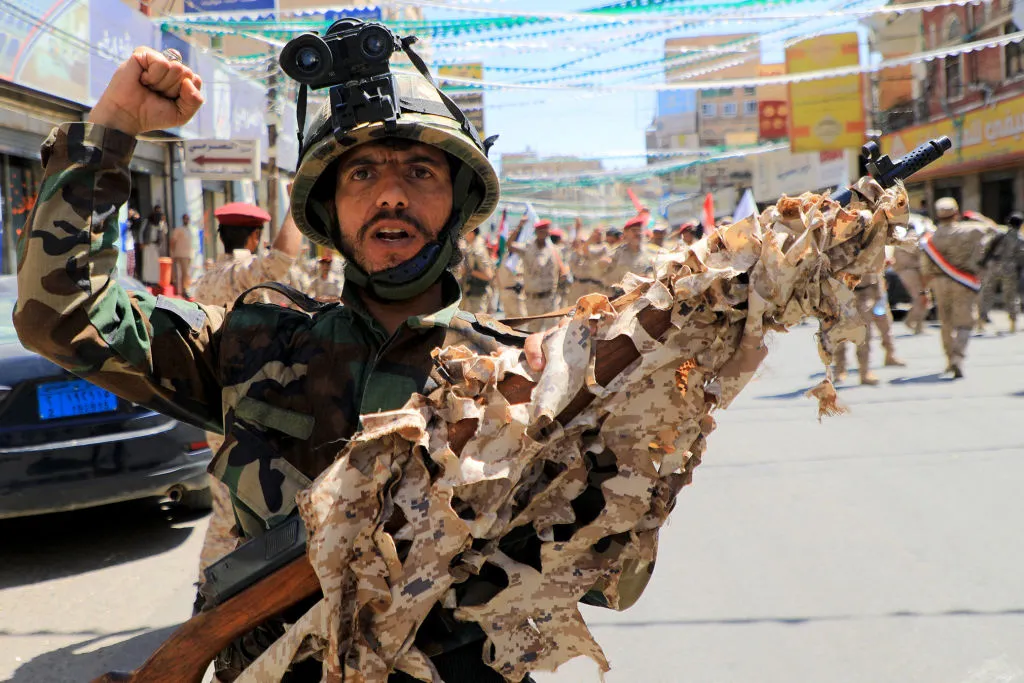
In a significant development, Houthi rebels in Yemen claimed responsibility for missile and drone attacks targeting Israel. This marks the first time the Houthi rebels have directly engaged in hostilities with Israel, escalating the ongoing conflict in the Gaza Strip and further complicating the regional dynamics. The attacks drew their main sponsor, Iran, closer into the unfolding situation, raising concerns of a broader regional conflict.
The Houthi rebels had previously been suspected of launching an attack on Israel earlier this month, where missiles and drones were sent over the Red Sea, with the U.S. Navy intercepting and shooting down the projectiles. However, this latest incident involved two salvos of incoming fire that were intercepted by Israel’s fighter jets and its Arrow missile defense system as they approached the vital Red Sea port of Eilat.
The Houthi rebels claimed responsibility for three attacks on Israel, although the exact timeline of these operations remains unclear. Brig. Gen. Yahya Saree, the Houthi military spokesman, stated that these attacks were carried out in support of their “oppressed brothers in Palestine” and that they intended to continue launching missile and drone strikes until Israeli aggression ceased.
Israel’s response to these attacks included the rare in-combat use of the Arrow missile defense system. The fact that all aerial threats were intercepted outside Israeli territory indicates the effectiveness of Israel’s defense systems. Nevertheless, the missile fire triggered air raid sirens in Eilat, prompting residents to seek shelter.
The specific weapons used in the attack were not disclosed, but the involvement of the Arrow system suggests the use of ballistic missiles. The Houthi rebels possess a variant of the Burkan ballistic missile, which is believed to be capable of reaching over 1,000 kilometers, putting Eilat within its range.
This latest incident comes at a time when the USS Bataan and other elements of its strike group are likely present in the Red Sea. Air Force Brig. Gen. Pat Ryder, the Pentagon’s press secretary, acknowledged the Houthi attacks on Israel, highlighting the rebels’ missile capabilities, which could reach distances of up to 2,000 kilometers. The U.S. expressed its intention to monitor the situation closely to prevent the escalation of a broader regional conflict.
Saudi Arabia, which has been involved in a protracted conflict with the Houthi rebels, did not immediately respond to the situation. Recent reports indicated that four Saudi soldiers were killed in clashes with the rebels in its southern Jazan province. Despite attempts to reach a peace deal with the Houthis, tensions persist in the region.
The Houthi rebels’ claim of responsibility further draws Iran into the ongoing conflict. Iran has long provided support to both the Houthi rebels and Hamas, as well as the Lebanese Shiite militia group Hezbollah. This situation adds to the existing tensions in the region, as U.S. troops have also been targeted in drone attacks by Iranian-allied militia groups in Iraq and Syria.
The Houthi rebels follow the Shiite Zaydi faith, which is predominantly found in Yemen. Their slogan has included “death to America” and “death to Israel,” and the recent attacks demonstrate their increased military capabilities, largely attributed to Iranian assistance.
The international community is closely monitoring the situation, with concerns about the potential for further missile barrages by Hezbollah, Hamas, and other groups. Additionally, there have been suspicions of Iran’s involvement in previous attacks, including the 2019 Abqaiq incident in Saudi Arabia, which temporarily disrupted the kingdom’s oil production.
Iran’s mission to the U.N. issued a warning that allied militias like the Houthis could expand their operations against Israel, urging the American administration to take steps to prevent further transgressions.
As the situation unfolds, the world watches with a heightened sense of concern, hoping for a de-escalation of tensions and a return to peaceful negotiations in the region.
